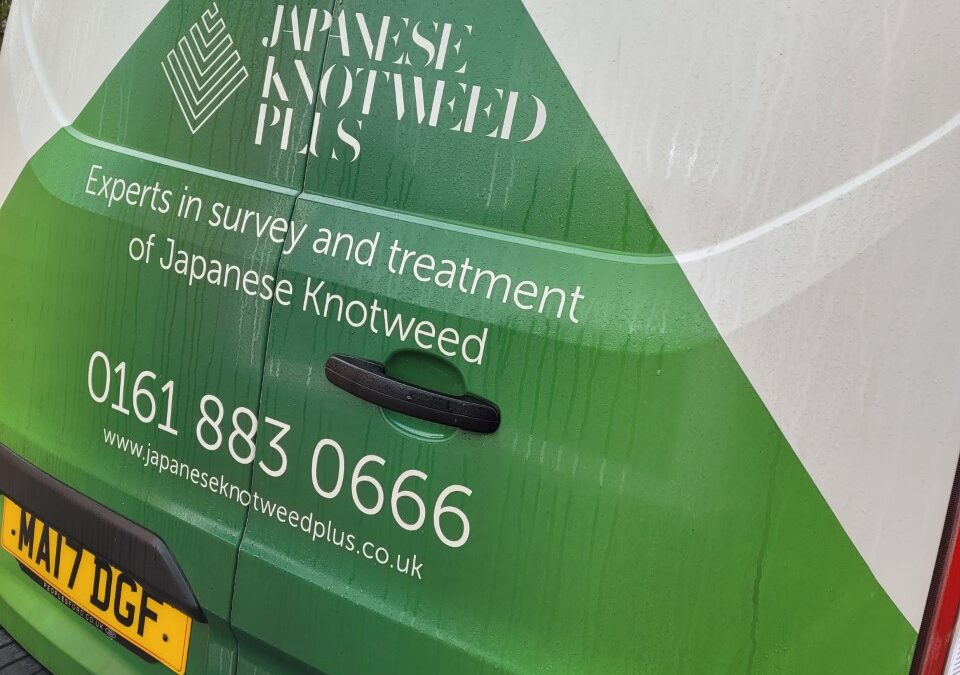What should I do if I find Japanese knotweed in my garden 2024
It is important to take action to control its growth in 2024 Here are some steps you can take:
- Identify the plant: Make sure that you have positively identified the plant as Japanese knotweed. It is important to know what you are dealing with before taking any action.
- Contain the plant: Japanese knotweed can spread rapidly, so it is important to contain the plant as soon as possible. This may involve installing a physical barrier, such as a root barrier, around the perimeter of the infestation.
- Contact a professional: Japanese knotweed can be difficult to control and eradicate, so it is recommended that you contact a professional for help. Look for a company that is a member of the Property Care Association (PCA) or the Invasive Non-Native Specialists Association (INNSA).
- Follow the treatment plan: Once you have a treatment plan in place, make sure to follow it as closely as possible. This may involve applying herbicides, digging up the roots, or introducing biological control agents.
- Monitor the progress: Keep an eye on the infestation to make sure that the treatment is working and that the plant is not re-growing.
- Dispose of the plant properly: It is important to dispose of the plant properly to avoid spreading the plant to other areas. The plant should be double-bagged, sealed, and labeled as Japanese knotweed and should not be composted.
Japanese knotweed is not a protected species in the UK.
It is considered an invasive non-native species. Moreover it is listed as one of the UK’s most invasive species by the UK government. The presence of Japanese knotweed can have a significant negative impact on native ecosystems. It can cause damage to buildings and infrastructure. The UK government encourages the control and removal of Japanese knotweed from the wild. Bare several pieces of legislation.
- The Wildlife and Countryside Act 1981. (As amended) makes it an offense to plant or otherwise cause to grow Japanese knotweed in the wild.
- The Environmental Protection Act 1990. (As amended) makes it an offense to knowingly deposit, dispose of, or knowingly cause or knowingly permit the deposit or disposal of controlled waste. Especially if it consists of or includes Japanese knotweed, in or on any land, except by the waste management license.
- The Anti-Social Behaviour, Crime, and Policing Act 2014. Gives local authorities, including the police, the power to take action. Owners or occupiers of land where Japanese knotweed is causing a nuisance or causing harm to the wider community.
The Highways Act 1980,
gives local authorities the power to remove any vegetation that is causing danger or obstruction on a highway, including Japanese knotweed. What should I do if I find Japanese knotweed in my garden?
An individual can receive an ASBO (Anti-Social Behaviour Order)
From the local council for not dealing with Japanese knotweed that has spread into a neighbour’s garden. Under the Anti-Social Behaviour, Crime and Policing Act 2014. This act gives local authorities power. To take action against the owners or occupiers of land where Japanese knotweed is causing a nuisance or causing harm to the wider community.
An ASBO is a court order that can be imposed.
On an individual or organization that has engaged in anti-social behavior. If an individual fails to comply with the terms of an ASBO, they can be held in contempt of court and face a fine or imprisonment.
Moreover, It’s important to note that while it is not illegal to have Japanese knotweed on your property. But if it is causing damage to a neighbouring property. Or causing a nuisance to the community. You can be ordered to take action to remove it and can be held liable for any damage caused. It’s always best to consult with an expert and take action. Control and remove the invasive plant before it causes problems for your neighbours and the community.
